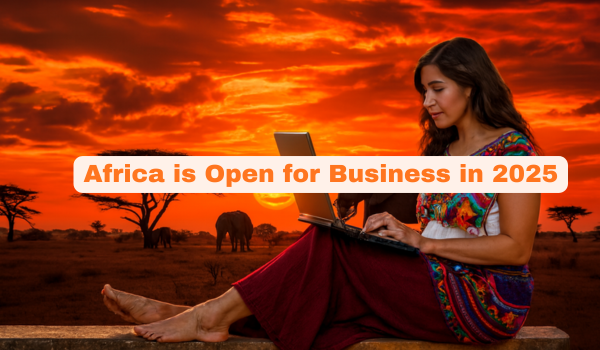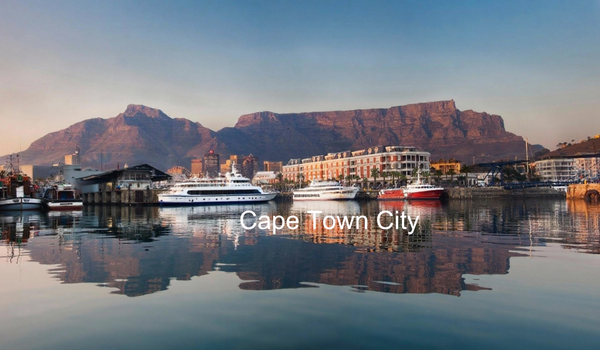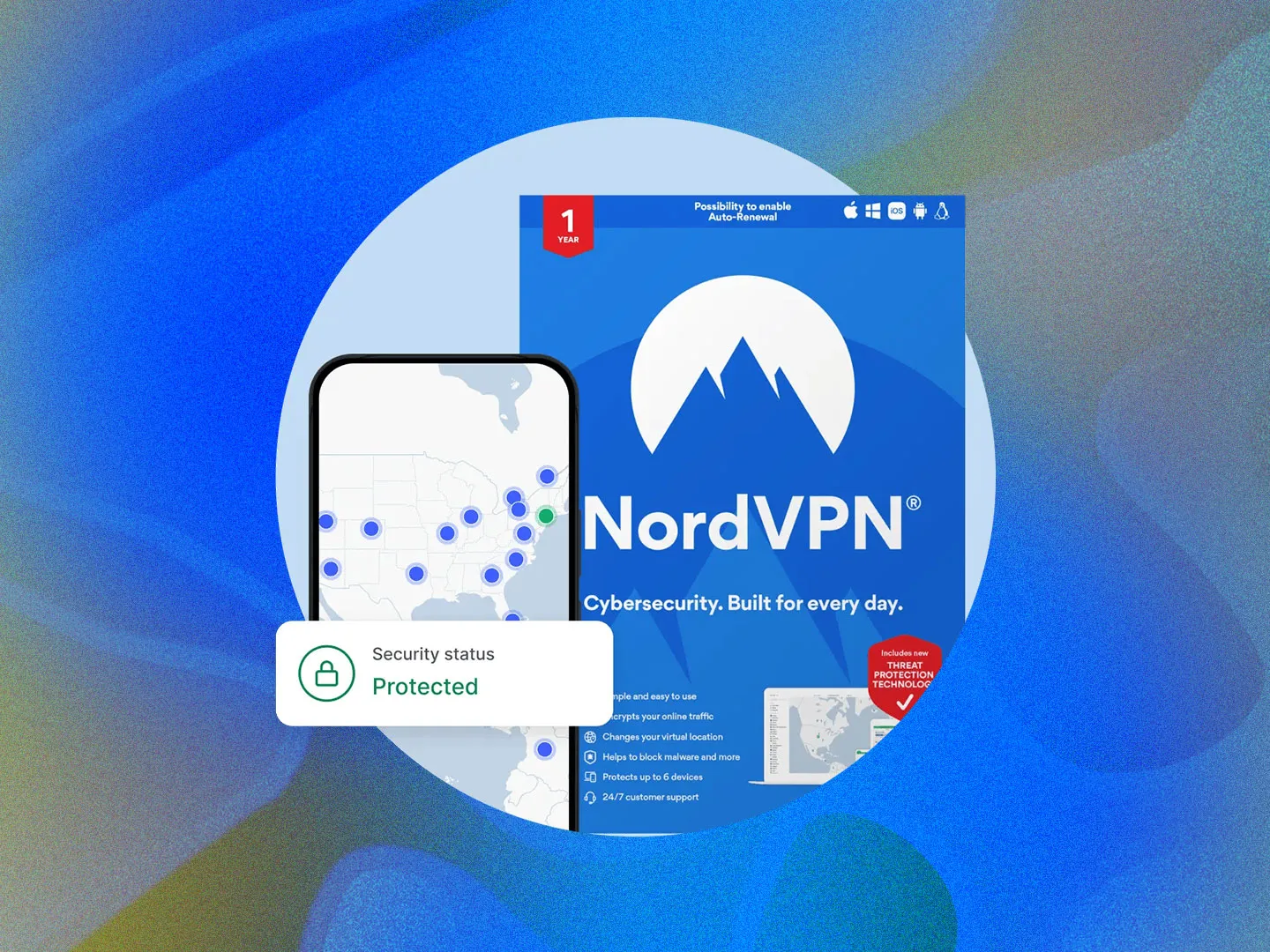Livingborderlessly
Archives
The Next Digital Nomad Frontier is African: Your 2025 Guide
SIGN UP FOR OUR NEWSLETTER
|
Forget the crowded cafes of Lisbon and Bali. In 2025, pioneering remote workers are turning to Africa for unparalleled adventure, affordability, and a chance to shape the future of work. |
The Next Digital Nomad Frontier is African: Your 2025 Guide to Visas, Vibes, Value Safari, Sun, and Superfast WiFi: 🦁💻 |
While everyone else is flocking to familiar spots, the most exciting digital nomad news is unfolding across a continent of unparalleled beauty and opportunity: Africa. 2025 is the year to look south. Several nations now have attractive visas specifically for remote workers. Ready to be a pioneer? Here's your guide.
For years, the digital nomad trail has been a well-worn path through Southeast Asia and Europe, but a seismic shift is underway.
The global remote work community is waking up to a continent brimming with vibrant cities, stunning landscapes, and burgeoning tech scenes.
As we move through 2025, Africa is no longer an alternative—it is the destination.
Several African nations have rolled out the welcome mat with dedicated digital nomad visas, recognizing the immense value that location-independent professionals bring to their economies.
This is your guide to navigating the next frontier of remote work, from the bustling streets of Nairobi to the serene shores of Cape Town. |
Kenya: Plug Into the Silicon Savannah
Kenya has firmly established itself as East Africa's tech and innovation powerhouse, and its digital nomad visa, the Class N Permit, reflects this forward-thinking approach.
Launched in late 2024, the permit is designed for professionals earning their income outside of Kenya.
The requirements are accessible, with a minimum annual income of $24,000 USD and an application process that is handled online.
The visa allows for a stay of one to two years and is renewable.
Nairobi, often called the "Silicon Savannah," is a magnet for tech talent, home to innovation hubs like iHub and a vibrant community of entrepreneurs.
Here, the work-life balance is extraordinary: you can spend your week collaborating in a high-tech coworking space and your weekend on a safari in the Maasai Mara.
It's a place where ambition and adventure coexist seamlessly.
Namibia: For Focus, Freedom, and Epic Landscapes
While South Africa and Kenya cater to the urban-minded nomad, Namibia offers something entirely different: profound tranquility and breathtaking natural beauty.
The Namibia Digital Nomad Visa is perfect for those who crave solitude and inspiration.
To qualify, applicants need to demonstrate a monthly income of $2,000 for an individual, plus additional funds for dependents.
This visa is a ticket to an office with the world's most dramatic backdrops.
Imagine finishing your workday and heading out to witness the sunset over the iconic red dunes of Sossusvlei or exploring the stark beauty of the Skeleton Coast.
The capital, Windhoek, offers reliable infrastructure and a growing cafe culture, providing a comfortable base for deep work and exploration.
More Destinations on the RiseThe movement isn't limited to just a few countries.
Mauritius has been quietly attracting remote workers for years with its Premium Travel Visa, valid for one year and renewable.
With a low monthly income requirement of $1,500, a simple online application, and a tropical island lifestyle, it's an incredibly attractive option.
Other nations like Rwanda, with its reputation for safety and efficient governance, and Morocco, with its rich culture and proximity to Europe, are also becoming popular hubs for remote workers, even without formal nomad visas.
The 2025 Practicalities: Connectivity and Cost
A common hesitation about working from Africa has always been internet reliability, but this is rapidly changing.
The expansion of satellite internet services like Starlink across more than a dozen African nations is a game-changer, bringing high-speed connectivity to even remote areas.
While major hubs like Cape Town and Nairobi have long had excellent fiber internet, this new wave of technology ensures that productivity is possible almost anywhere.
The financial incentive is undeniable.
Across the board, the cost of living in these African hubs is significantly lower than in traditional nomad hotspots.
Your budget stretches further, affording a higher quality of life that might include a spacious apartment, frequent dining out, and incredible weekend travel experiences that are often a luxury elsewhere.
The time to be a pioneer is now.
As the world of remote work matures, the desire for authentic, transformative experiences is growing.
Africa offers just that a chance to be part of a dynamic, evolving story, far from the saturated markets and beaten paths.
|
South Africa: The Rainbow Nation is Officially Open |
After much anticipation, the South Africa Digital Nomad Visa became fully operational in early 2025, creating a streamlined pathway for remote workers.
This visa allows a stay of up to one year and is renewable for a total of three years, making it one of the most generous offerings on the continent.
Applicants must show proof of remote work for foreign clients or companies and meet a minimum annual income of around R1 million, which is approximately $55,000 USD.
The lifestyle on offer is simply world-class.
In Cape Town, you can spend your mornings working from a trendy coffee shop in Gardens and your afternoons hiking Table Mountain.
The cost of living is a major draw; a single person can live comfortably for around $1,500 per month, a fraction of the cost of a similar lifestyle in a major US or European city.
Beyond Cape Town, the creative energy of Johannesburg's Maboneng precinct and the coastal beauty of Durban offer diverse environments for every type of nomad. |
Frequently Asked Questions |
What is the best African country for a digital nomad in 2025? It depends on your priorities. For a vibrant city life, excellent infrastructure, and social opportunities, Cape Town, South Africa is a top contender. For tech networking and an energetic, innovative environment, Nairobi, Kenya is unparalleled. For solitude, nature, and deep focus, Namibia is an excellent choice.
How much does it cost to be a digital nomad in Africa? Costs vary, but are generally much lower than in Europe or North America. In a city like Cape Town, a single person can live comfortably on $1,500-$2,000 per month. In Nairobi, the costs can be even lower. This budget typically covers rent, food, transportation, and leisure activities.
Is Africa safe for remote workers? Like anywhere in the world, safety varies by city and neighborhood. Major digital nomad hubs like Cape Town, Nairobi, and Windhoek have large expatriate communities and established safety protocols. It is always wise to research specific neighborhoods, take standard precautions like using ride-sharing apps at night, and connect with local nomad groups for on-the-ground advice. |




